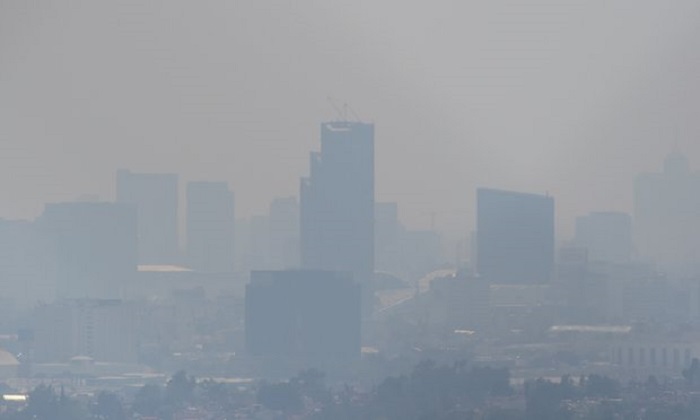Researchers analysed the experiences of more than 2,000 17-year-olds across England and Wales and found that those in places with higher levels of nitrogen oxides had a 70% higher chance of symptoms such as hearing voices or intense paranoia.
People growing up in cities were already known to have more psychotic experiences than those outside urban areas and the new work suggests toxic air is one potential reason. But the type of study done cannot prove a causal link, and other factors such as noise could be important.
Psychotic experiences are much more common in adolescents than in adults, but those having these symptoms when young are more likely to develop serious mental illnesses later. With more people around the world living in cities every year, scientists are particularly keen to uncover the reasons for mental ill health in urban centres.
The study took into account other potential causes of psychotic experiences, such as smoking, alcohol and cannabis use, family income and psychiatric history, and measures of neighbourhood deprivation. “[Nitrogen oxides] explained about 60% of the association between urban living and psychotic experiences,” said Joanne Newbury at King’s College London, who led the research. Other factors may include genetic susceptibility and experience of crime.
Nitrogen oxides come largely from diesel vehicles and are at illegal levels in most British towns and cities, with the government having lost three times in the high court over its failure to cut pollution quickly. Research is linking air pollution with an increasing range of ill health, including reduced intelligence, dementia and depression, while other work has revealed air pollution can reach the brain.
“There seems to be some link between exposure to air pollution and effects in the brain and this [new research] is perhaps another example of this,” said Prof Frank Kelly, at King’s College London and also part of the research team. “Children and young people are most vulnerable to the health impacts of air pollution owing to the juvenility of the brain and respiratory system.”
The new study, published in the journal Jama Psychiatry, combined high-resolution air pollution data and psychotic experiences disclosed by the adolescents in private interviews. A third of the young people lived in urban areas, with one fifth being rural and the rest suburban. Overall, 30% of the young people reported at least one psychotic experience, a rate considered normal for teenage years.
But psychotic experiences were significantly more common among teens living in the top 25% most polluted places. “In areas with the highest levels of [nitrogen oxides], there were 12 teens who reported psychotic experiences for every 20 teens who did not, said Newbury. “In areas with lower levels, there were only seven teens who reported psychotic experiences for every 20 teens who did not.”
The researchers also found a link to small particle pollution, with psychotic experiences 45% more common for those teens exposed to higher levels. However, they said that while this first study provided good evidence, it was important other studies were done to confirm the findings.
“The study makes a valuable contribution to the growing body of evidence that air pollution may affect more than just cardiovascular and respiratory health,” said Stefan Reis, the head of atmospheric chemistry and effects at the Centre for Ecology & Hydrology. “This new study makes a compelling case to investigate a range of mental health outcomes of air pollution exposure.”
“People living in cities are subjected to high concentrations of toxic particles and gases from exhaust fumes on a daily basis,” said Dr Ellen Wood, from the Doctors Against Diesel campaign group. “This study adds to the growing evidence that air pollution could have devastating and far reaching consequences on our physical and mental health, that is put at further risk if policymakers do not address this public health emergency.”
“We urgently need to see policies that equitably reduce polluting vehicles on our roads, and replace them with affordable, sustainable and accessible public transport,” said Rebecca Daniels, at the global health charity Medact.
More about: #AirPollution
















































